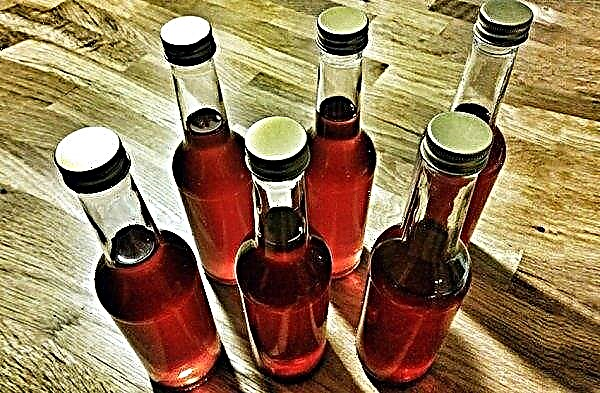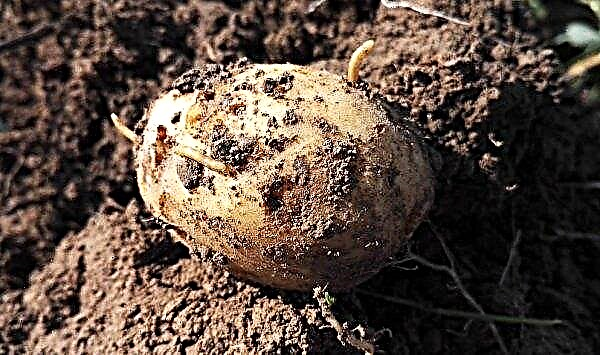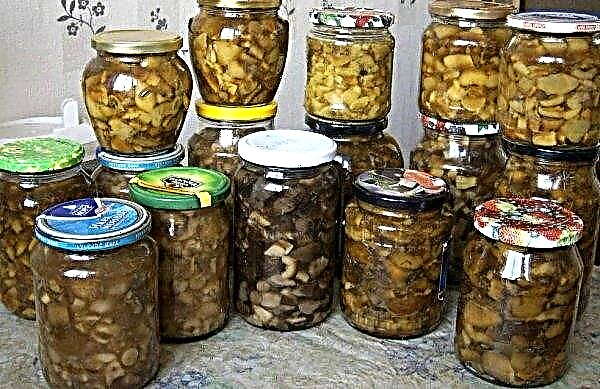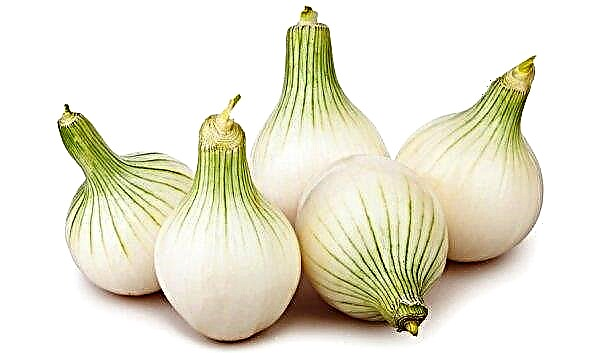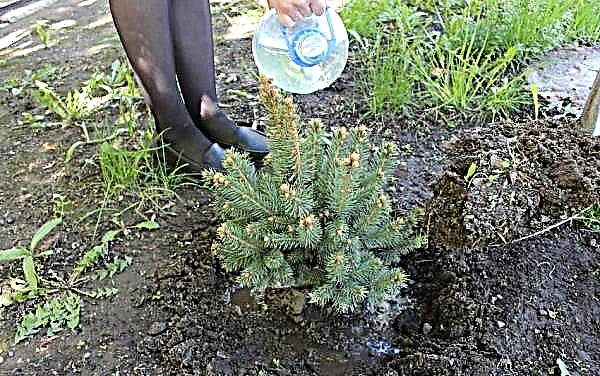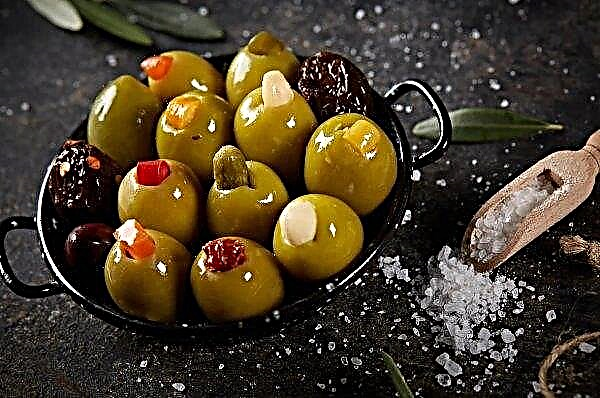There are situations when, when buying vegetables, fruits or berries in a store or in a bazaar, you may encounter a discrepancy in quality, smell, taste, or any other aspect. For example, you can choose a beautiful-looking melon, but cutting it, hear a strange, unpleasant and pungent smell of acetone. From what it appears, what is the danger of such a phenomenon, is it possible to eat a melon with the smell and taste of acetone, and we will discuss a number of other issues in this article.
Why does the smell and taste of acetone appear
The main reasons for the development of acetone taste and smell can be:
- improper care of gourds;
- excessive application of chemicals;
- processing with special mixtures for long-term storage and preventing spoilage;
- due to premature failure, before ripening, and prolonged subsequent storage.

Did you know? Not only melon can give acetone, but also, for example, banana. If it was ripped in an unripe form (namely, this is done so that the fruits can be transportable), then ripening processes begin to occur inside and a chemical reaction is inevitable. In the hands of such a banana will simply creep into the pit because of the high alcohol content and its effect on biological fibers.
The danger of the taste of acetone
If the fruit of the melon bush does not have a single flaw, everything inside is smooth, clean and beautiful, so some chemical was to blame for the acetone smell. This conclusion already emphasizes the danger of using such a melon, and therefore, if the melon smells of acetone and at the same time looks absolutely normal (without putrefactive damage, cracks in the peel, spots at the ends and other things), then eating it can be dangerous.

To minimize the possibility of poisoning with such a chemically hazardous product, you should purchase it from trusted sellers who are independently engaged in gardening, or, even better and safer, grow this gourd culture yourself in your summer cottage. It is also not recommended to purchase berries after the end of the season (from mid-late September), because then the risk of additional chemical treatments for long-term storage and the absence of spoilage increases significantly.
Important! If odors or tastes uncharacteristic of melon berries are found, eating it is not recommended. Especially make sure that such a product does not fall into the hands and stomachs of children, because their immune system may not cope with the toxin, which will lead to poisoning.
Is it possible to eat such a melon
Considering the fact that in most cases the culprits of acetone smell and taste are chemical treatment or the beginning of spoilage processes, the use of such a berry is not only impossible, but also dangerous to health. In the best case, you will not cause serious harm and everything that threatens it will result in mild nausea and headache, and in the worst case, it can lead to hospitalization with acute poisoning. Therefore, such fruits can not be consumed. And then, it is unlikely that anyone will have a desire to eat a melon that smells of acetone.
How to choose a good melon
In order to make the right choice of high-quality, tasty and most importantly safe and healthy melon, you should know and apply a number of recommendations for selection, reduced to a number of rules during external examination and when checking for touch.

Inspection
During the inspection, you should carefully search the entire surface of the fetus for putrefactive lesions, spots, dots, cracks, dents or other injuries that will indicate a poor-quality product. Other indicators will be bluish or pinkish spots indicating chemical aerosol treatment. Particular attention should be paid to smell. Melon should smell like melon. And there should not be any impurities of acidic, rotten, moldy or acetone odors.
Important! If the melon does not have any smell, then it definitely underwent chemical treatment. It is not recommended to buy such a melon.
Touch test
Another important step in testing for fitness will be to feel the surface of the fetus. You need to do this closer to the ends, because it is from there that the processes of damage begin, and if there are any, then in those areas your fingers will feel for soft spots. Also, pick up the berry and check if its impressive size (namely, these are often sold in stores) matches the weight. If the answer is no, then there are voids inside, or decomposition processes have begun.
Melon storage conditions and terms
The storage time of the melon berry may depend on which variety the berry belongs to in terms of early maturity.
Accordingly, the following categories are distinguished:
- Early grade. The maximum storage period is 30 days. Better to use in a 20-day period.
- Medium grade. The maximum shelf life is from 90 to 120 days. It is also not recommended to delay and consume such fruits earlier than the final term.
- Late grade. It is permissible to store up to six months. During this period, the fruits should be examined for putrefactive and mildewed lesions. If any are found, the melon is removed and disposed of.

As for the melon already cut, if the fruit is large and it was not possible to eat it at one time, then such melon can be stored for no more than 24 hours, packed in a plastic wrap or container with an airtight lid and put into the refrigerator. Without a container or film, the melon will be suitable for use for several hours, after which the remains will have to be thrown away.
Did you know? Yubari King melons have become the most expensive in the world. They are grown only in a small region of Japan. This is the juiciest and sweetest melon known at present, with the most delicate pulp. It is sold at auction, and one piece can pull in $ 10,000.
We also offer you some basic recommendations on storage conditions for melons at home:
- only ideal fruits are subject to preservation, without the slightest flaw;
- if there is damage, such a berry should be put into business first of all and as soon as possible;
- several melons can be stored on the balcony (if there is no own cellar);
- during collective storage, it is worth sharing the berries among themselves with the help of newspapers, paper, sawdust or, if possible, sand, in order to exclude the option of contact (this will help to avoid dents and the development of mold and putrefactive lesions);
- it is advisable to store melons in a suspended state in order to exclude contact with solid surfaces;
- conduct regular inspections of the fruit for lesions;
- do not store melon next to other vegetables and fruits, especially in the refrigerator;
- exclude the possibility of direct sunlight;
- also an alternative storage option can be freezing, preservation or drying.

Guided by the rules given in this article, you can choose a quality melon and get all the useful things that are in it. Proper storage will help you to enjoy the pleasant aroma and taste of this gourd for a long time. And the question of why there is an acetone odor will never bother you again.




